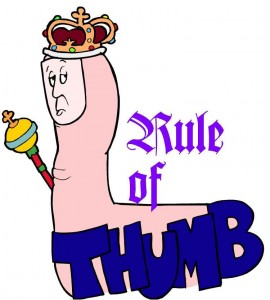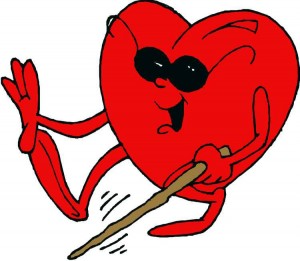Фразеологизмы и их роль в английском языке. Реферат Фразеологизмы и их роль в английском языке содержание введение 3
 Скачать 491.02 Kb. Скачать 491.02 Kb.
|
|
ЛИТЕРАТУРА Абаев В.И. Понятие об идеосемантике // Язык и мышление. Вып.11. Москва-Ленинград,1948. Гачев Г. Ментальности народов мира. М.:Эксмо,2003. Голденков М.А, Осторожно! HOT DOG!Современный активный English, М., 2004 Дубровин М. Иллюстрированный сборник идиом на пяти языках. М., 1997 Кузьменкова Ю.Б. От традиций культуры к нормам речевого поведения британцев, американцев и россиян. М.: Изд. Дом ГУВШЭ, 2005. Кунин А.В. Фразеология современного английского языка. М., 1972. Логан П. Смит Фразеология английского языка. М., 1959. Павловская А.В. Англия и англичане. М.:Изд. Моск. Ун-та,2004. Прохвачева О.Г. Лингвокультурный концепт «приватность» (на материале американского варианта английского языка). Автореф. дисс. …канд. филол. наук. Волгоград,2000. Cambridge International Dictionary of English. ПРИЛОЖЕНИЯ Идиомы Шекспира По числу фразеологизмов, обогативших английский язык , произведения Шекспира занимают второе место после Библии. Число около 135 A fool's paradise -нереальный мир, мир иллюзий; призрачное счастье; блаженное неведение. An early phrase, first recorded in the Paston Letters, 1462: "I wold not be in a folis paradyce." Shakespeare later used it in Romeo and Juliet. Nurse: Now, afore God, I am so vexed, that every part about me quivers. Scurvy knave! Pray you, sir, a word: and as I told you, my young lady bade me inquire you out; what she bade me say, I will keep to myself: but first let me tell ye, if ye should lead her into a fool's paradise, as they say, it were a very gross kind of behavior, as they say: for the gentlewoman is young; and, therefore, if you should deal double with her, truly it were an ill thing to be offered to any gentlewoman, and very weak dealing. Fair play -игра по правилам Shakespeare coined this phrase and used it in several of his plays. For example, The Tempest: MIRANDA: Yes, for a score of kingdoms you should wrangle, And I would call it, fair play. The term migrated into 'fair dinkum', which is well-known as an Australian phrase but may have travelled there from England. An unambigously Australian term meaning the same thing as 'fair play' is the more recent 'fair go'. This is first recorded in the Australian author Lewis Stone's book Jonah, 1911: High time -cамое время 'High times' comes from the same root as 'high days and holidays', i.e. days of religious note and festivals. High in that sense has been used in English since the middle ages, although there are few references to it in print until the 19th century, as in this from the Canadian newspaper, The British Colonist, 1858: Shakespeare also used it in his Comedy of Errors: ANTIPHOLUS OF SYRACUSE: There's none but witches do inhabit here; And therefore 'tis high time that I were hence. She that doth call me husband, even my soul Doth for a wife abhor. But her fair sister, Possess'd with such a gentle sovereign grace, Of such enchanting presence and discourse, Hath almost made me traitor to myself: But, lest myself be guilty to self-wrong, I'll stop mine ears against the mermaid's song. Night owl -полуночник, сова 'Nightowl' was originally just a synonym for 'owl' and has been used as such since at least 1581, when Bell and Foxe included it it their translated work Against Jerome Osorius. That seems rather tautological as owls are predominantly nocturnal and, in an apparent general acceptance of that view, the literal use of the word is now rather rare. The figurative use of the term, i.e. as a reference to people rather than owls, also began in the 16th century. Shakespeare used it in 1594 in the narrative poem The Rape of Lucrece: This said, his guilty hand pluck'd up the latch, And with his knee the door he opens wide. The dove sleeps fast that this night-owl will catch: Thus treason works ere traitors be espied. The Bard didn't give up on the literal usage though. It appears, in contexts which make the literal reference to a bird clear, in both Richard II, 1597: "For nightowles shreeke, where mounting larkes should sing." and in Twelfth Night, 1616: "Shall wee rowze the night-Owle in a Catch?" Short shrift -короткая, быстрая расправа Shrift? Not a word you hear every day. In fact, apart from in this expression, it is now so rarely used that it's hard to think of a shrift that isn't short. The verb form, shrive, is also now an almost forgotten antique. A shrift is a penance (a prescribed penalty) imposed by a priest in a confession in order to provide absolution, often when the confessor was near to death. In the 17th century, criminals were sent to the scaffold immediately after sentencing and only had time for a 'short shrift' before being hanged. Shakespeare was the first to write it down, in Richard III, 1594. RATCLIFF: Dispatch, my lord; the duke would be at dinner: Make a short shrift; he longs to see your head. It doesn't appear again in print until 1814, Scott's Lord of the Isles: "Short were his shrift in that debate. If Lorn encounter'd Bruce!" That seems an uncommonly long time to wait for a phrase that is in regular use. We can assume that, given the gap, the phrase wasn't part of the language in Shakespeare's day, or for some time afterwards, and that he coined it himself. Some sources cite it as '14th century', but neglect to offer any evidence to support that. It didn't migrate across the Atlantic quickly either. The first citation there is from the Adams Sentinel, Gettysburg, Pennsylvania, August 1841: "The negroes were to be tried on Wednesday, and it was believed that a short shrift and a speedy doom would be awarded to the guilty." Woe is me -горе мне This occurs in the Bible, Job 10:15 (King James Version) in the form 'woe unto me'. Job is one of the oldest books in the Old Testament, early versions of which date from about 1200BC, making the phrase in the original language 3,200 years old. The first occurrence of it in English would have been Wycliffe's Bible translation in 1382. Job 10:15: If I be wicked, woe unto me; and if I be righteous, yet will I not lift up my head. I am full of confusion; therefore see thou mine affliction; Shakespeare also used it in Hamlet, 1603. The Bible has several instances of the 'woe is me' version of the phrase: Psalms 120:5: Woe is me, that I sojourn in Mesech, that I dwell in the tents of Kedar! Isaiah 6:5: Then said I, Woe is me! for I am undone; because I am a man of unclean lips, and I dwell in the midst of a people of unclean lips: for mine eyes have seen the King, the LORD of hosts. Jeremiah 4:31: For I have heard a voice as of a woman in travail, and the anguish as of her that bringeth forth her first child, the voice of the daughter of Zion, that bewaileth herself, that spreadeth her hands, saying, Woe is me now! for my soul is wearied because of murderers. Vanish into thin air -расствориться в воздухе Shakespeare came close to this phrase in Othello, 1604: Clown: Then put up your pipes in your bag, for I'll away. Go; vanish into air; away! and in The Tempest, 1610: Prospero: These our actors, as I foretold you, were all spirits and are melted into air, into thin air It seems clear that Shakespeare coined the terms thin air (which has been widely used since the 17th century by a diverse collection of authors, including John Milton (1671), William Blake (1800) and Ed McBain (1977) and vanish into air, used by lesser-known author; James Hogg, in his work Mountain Bard (1807). Shakespeare didn't put the two together to make vanish into thin air though. The first use I can find of that phrase, which is clearly an adaptation of Shakespeare's terms, is in The Edinburgh Advertiser, April 1822, in a piece about the imminent conflict between Russia and Turkey: The latest communications make these visions "vanish into thin air." Таблица соответствующих идиоматических выражений в английском и русском языках
Причины появления 7 английских фразеологизмов
Интересное происхождение идиом 1. The rule of thumb - означает, что это первое и самое главное правило, которому нужно подчинятся и которое основанно на опыте.  As a general rule of thumb, you need to drink 2 liters of water a day. По многочисленным источникам, происхождение этой идиомы берёт свои истоки в 1782, когда судья Сэр Франсис Буллер принял закон о том, что мужчина имеет право избить свою жену палкой, если эта палка не толще большого пальца. Отсюда и произошло выражение – правило большого пальца или «the rule of thumb». 2. One sandwich short of a picnic – так говорят о том, кто сумасшедщий или глупый. Please don’t trust Eric, he is one sandwich short of a picnic. Существует несколько выражений, в которых говорится, что кому-то или чему-то чего-то нехватает. Все они значат одно: тот, кому не хватает, или сумасшедщий или глупый. Однако выражение «one sandwich short of a picnic» достаточно новое выражение. Впервые оно было употреблено в передаче BBC «Lenny Henry Christmas Special» в декабре 1987 года, где он пародировал Майкла Джексона и переделал его песню «Bad» на «I’m Mad». Песню вы можете прослушать ниже, обратите внимание на слова последнего куплета: «He’s mad, mad, one brick short of a load He’s mad, mad, one sandwich short of a picnic» 3. Drop in a bucket – эта идиома-предшественник – “drop in the ocean”, что означает одно и тоже. В русском языке есть подобное выражение – «капля в море». The company donated two thousand dollars for a cause, but this is just a drop in a bucket. Интересно, что эта идиома впервые употребляется в Библии, в книге Исаия 40:15: «Behold, the nations are as a drop of a bucket, and are counted as the small dust of the balance: behold, he taketh up the isles as a very little thing.» Было ли это слово употреблено впервые в Библии не известно, но известно, что в письменной литературе оно встречается первый раз именно там. 4. Love is blind – любовь слепа.  I can’t believe I dated him for so long, love is blind. Очень много идиом и крылатых выражений в английском языке были придуманы Уильямом Шекспиром. Впервые употребление этой идиомы было замечено в его таких известных произведениях как: «Два Веронца», «Король Генрих V», «Венецианский Купец». Вот интересная цитата из пьесы Уильяма Шекспира «Два Веронца»: «VALENTINE I have loved her ever since I saw her; and still I see her beautiful. SPEED If you love her, you cannot see her. VALENTINE Why? SPEED Because Love is blind. O, that you had mine eyes; or your own eyes had the lights they were wont to have when you chid at Sir Proteus for going ungartered!» 5. As keen as mustard – полный энергии, энтузиазма. You can ask Steve to help you, he is always as keen as mustard. В Англии с давних времён любили жаренную говядину. И по сей день существует традиция в Англии – вся семья собирается за обедом кушать Sunday roast, в который входит жаренная картошка с говядиной. А говядину едят с горчицей. Существует даже песенка Ричарда Левериджа о говядине, известная с 1735 года, в которой поётся о том насколько она полезна: When mighty Roast Beef was the Englishman’s food It ennobled our brains and enriched our blood. Our soldiers were brave and our courtiers were good Oh the Roast Beef of old England and old English Roast Beef С давних времён также считалось, что горчица может исцелить все недуги. Вы, наверное, знакомы с этими бабушкиными рецептами: если вы перемёрзли или простудились, то нужно попарить ноги в горчице или сделать из неё компресс. Конечно же, такие рецепты были популярны и в Великобритании. Горчица считалась приправой, которая прибавляет энергию и сил, и исцеляет различные недуги. Именно поэтому горчица связанна с энергией и здоровьем. Отсюда и произошло выражение «keen as mustard». 6. it's raining cats and dogs  досл.: дождь из собак и кошек знач.: льет как из ведра Этот фразеологизм, ярко иллюстрирующий погоду в Англии, берет начало в “A Complete Collection of Polite and Ingenious Conversation” Джонатана Свифта: I know Sir John will go, though he was sure it would rain cats and dogs… |
